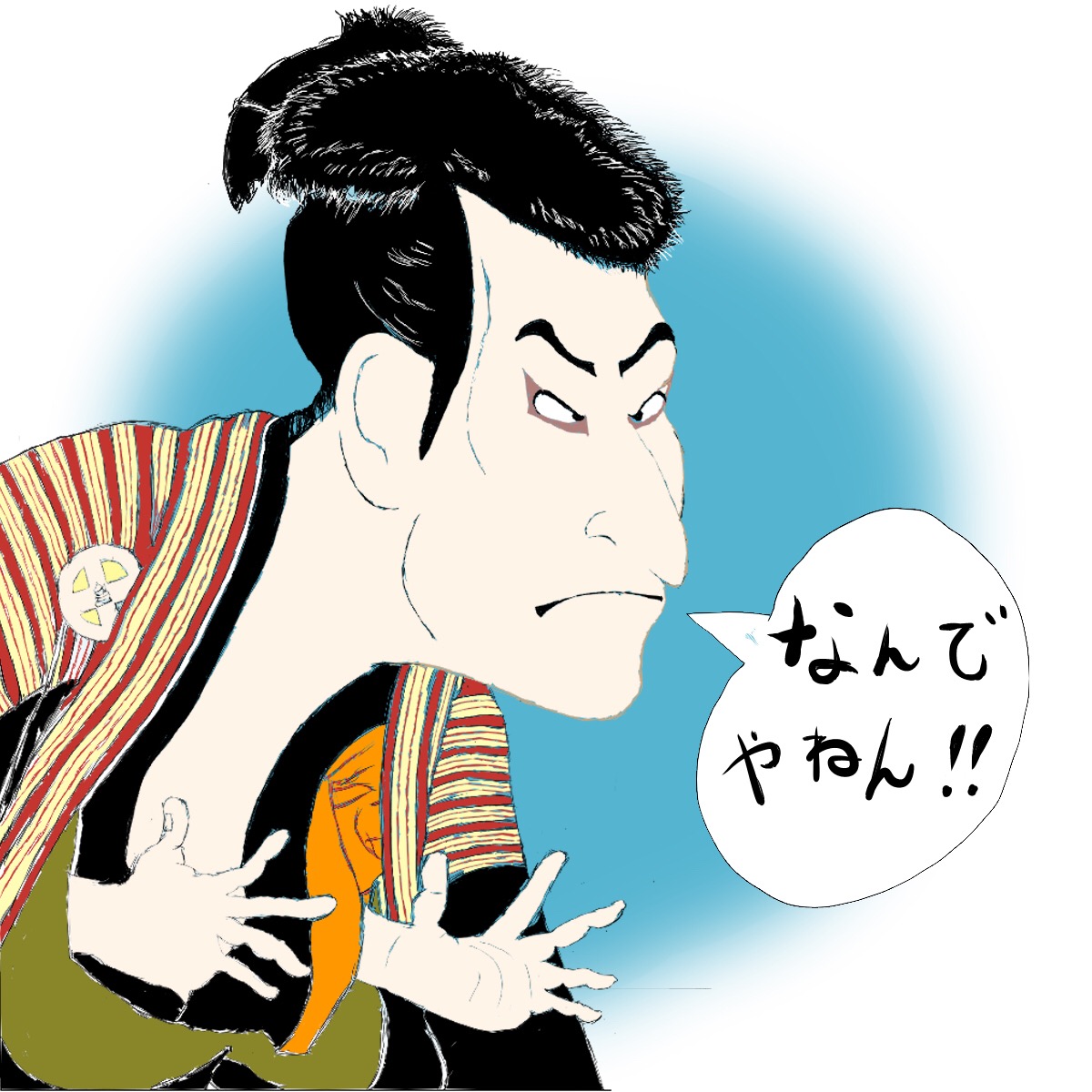 Hi,I’m Keiko from Osaka!
Hi,I’m Keiko from Osaka!
Did you notice that there are various dialects in Japan?
Though we share a single language, Japanese, depending on the region, we speak in different dialects, have different slangs and use different intonations.
Some dialects are so different that people from other regions sometime do not understand exactly what is being said!
When we are away from home and hear our dialect, the beautiful sound warms our heart.
In Osaka, there is a dialect called “Osaka-ben” or “Kansai-ben.”
If you master a few words particular to Osaka-ben, it will surely make the local happy and you will fit right into the crowds.
Here are 10 easy to learn Osaka dialects and Osaka slangs that will make the locals very happy!
10 Osaka Dialects and Slangs
1.Nande ya nen!/なんでやねん!
In English, this means “Why?” “No way!!” or “You’ve got to be kidding me!”Though in a standard dialect, this can be translated as “Nande?” “Nande sou naruno?” or “Doushite?” Osaka dialect speakers use this term “Nande ya nen!” not so much to demand a reason of something, but rather to express a surprise or denial of a logic being spoken or the situation witnessed.
This is often spoken in a very casual setting.
It is also one of the most popular Osaka slangs around that everyone recognizes.
You might have actually heard this on TV or anime.
Now you know what it means!
2.Donai Shitan?/どないしたん?
In English this can be translated as “What’s the matter?” or “What’s wrong?”In a standard dialect, this is spoken as “doushita no?”
This is a perfect sentence to use when someone seems down or upset.
3.Meccha/めっちゃ
This is another very common and popular word that almost everyone in Japan recognizes.And for those who watch a lot of anime or Japanese TV, I am sure you have come across this a lot.
In English this means “very” using it to emphasize something.
In a standard dialect, this is replaced as “totemo.”
When you see something very cute, try saying “meccha kawaii” or when you eat something very delicious, say “meccha oishii.”
I am sure that will make the locals “meccha ureshii (very happy.)”
4.Ee-yan/ええやん
This means “it is nice!” or “isn’t it good?” depending on the context.In a standard dialect, “iine” is often used.
“Ee” in Osaka means “good” or “nice” and “yan” is a useful suffix to express one’s feelings/opinions or to ask listeners’ agreement when used in a question form.
You can combine this with “meccha” and you can already speak a fairly completed Osaka-ben, “meccha ee-yan! (it’s super nice, isn’t it!)”
5.Honma-ni/ほんまに
In English, this means “really” and people in Tokyo would say “Hontou-ni.”It is used to emphasize something.
You can also use this term as a question, “Honma-ni?” as to mean “are you sure?” “really?” in your conversation.
6.Suki-ya-nenn/好きやねん
This means “I like (it/that).”In a standard dialect, people would say “suki desu.”
You can indicate what you like or love about food, culture, etc.
You would also use this term to mean “I like you” or “I love you.”
Now you know a pick-up line!!!
7.Soya-na or Seya-na/そやな、せやな
This is a useful term used to agree with someone you are conversing with, as in “I agree!”In a standard dialect, people say “sou dane” or “sou desune.”
8.Akan/あかん
“Akan” is a versatile term that can be utilized in many ways.The most common meaning would be to mean “no” or “not good.”
People in Tokyo would say “dame” instead.
It can also be used to signify the disapproval or to express disappointment when something negative is happening to you, as in “oh.. this sucks!”
9.Chauwa/Chaunen/ちゃうわ、ちゃうねん
This term is another very common and popular word that can be recognized even among people outside of Osaka.It means “wrong” “different” or “it’s not like that!” in English.
In a standard dialect, “chigau” or “chigaunda” are used to express this word.
“Chau” literally means “different” and “wa” or “nen” at the end of the term are suffixes that emphasize the term and usually used together.
10.Ookini/おおきに
This is an easy one that will please everyone.This means “thank you” as in “arigato” of the standard dialect.
Commonly, this term is used more among the elders, business people, or geiko/maiko (geisha and its apprentice).
Though the youths do not really use this term commonly, but the term is well-understood by everyone and representative of “Osaka-ben.”
If you pick this up and use in Osaka, I am sure you fit right in!
It sounds so cute.
I hope you can pick up a few of these for when you go to Osaka!
There are also a variety of unique food tours in Osaka.
Dotonbori Food Crawl & Food Sample Tour:
If you want to try Izakaya and other finest Osaka’s food, try Osaka Bar Hopping Food tour with Magical Trip.
Osaka Bar Hopping Food Tour in Namba:
They’ll get to experience authentic Osaka foods and drinks by pub crawling local izakaya bars that travelers normally couldn’t find.
